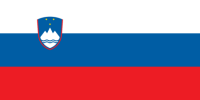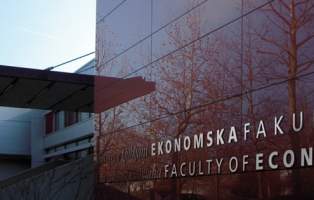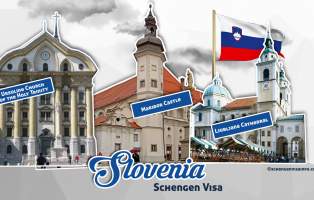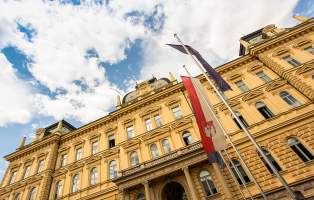Over the last 15 years Slovenian Higher Education has undergone institutional reform in accordance with the Bologna process, and Slovenia has seen a rapid increase in student numbers – attracting international students from TFYR Macedonia, Bosnia and Herzegovina and even India.
Slovenia is located in Southern Central Europe bordering Italy to the west, the Adriatic Sea to the southwest, Croatia to the south and east, Hungary to the northeast, and Austria to the north. The country has a population of 2 million and the official language is Slovene. Ljubljana is Slovenia’s capital city as well as its political, administrative, economic, and cultural centre. As Slovenia lies at the crossroads of the Alps, the Mediterranean, the Pannonian Plain and the Dinaric Mountain Range, individual Slovenian regions have developed their own distinct cultural identity and forms of economic activity.

EMBASSY OF SLOVENIA
A-5, Vasant Vihar, New Delhi, Delhi 110057, India
Tel. +91 11 4166 2891
Over the last fifteen years higher education in Slovenia has undergone several legislative and structural changes, rapid institutional development and a significant increase in student numbers. The higher education reform in 2004 introduced a threecycle structure according to the Bologna process guidelines. The first cycle has a binary system of academic and professional study programmes leading to the first cycle degree (180-240 ECTS, 3-4 years). The second-cycle offers masters courses (60-120 ECTS, 1-2 years). The third-cycle comprises doctoral studies (180 ECTS, 3 years). Higher education institutions in Slovenia consist of universities, faculties, art academies and professional colleges. There are forty-two higher education institutions which cover all fields of study; three public universities, incorporating forty-five faculties and three art academies, one public faculty and thirty- eight private higher education institutions (two of them are universities). Under certain conditions, private higher education institutions can also offer state co-financed courses. The academic year begins in October and lasts until the end of September in the following year. It is divided into two semesters - the winter semester usually runs from October to January and the summer semester from February to the middle of June. Tuition fees, range from 120,000 INR to 750,000 INR per year depending on the specific institution and type of course. According to the latest UNESCO statistics, Slovenia attracts more than 2,300 international tertiary level students each year, the bulk of which are from neighbouring countries Croatia, TFYR of Macedonia, and Bosnia and Herzegovina, with a small number of students from India.
The Centre of the Republic of Slovenia for Mobility and European Educational and Training Programmes – CMEPIUS manages scholarships awarded by the Government of the Republic of Slovenia. Another organisation – Slovene Human Resources Development and Scholarship Fund was established by the Government of the Republic of Slovenia with the aim of providing opportunities for the international mobility of students and researchers. The Fund provides scholarships and study loans for tuition, living expenses or other costs for Slovene and foreign citizens. The Centre for Slovene as a Second/Foreign Language promotes the understanding of the Slovene language, literature and culture on an international scale. The scholarships are provided mostly for lectureships in the Slovenian language. The Slovenian Science Foundation is a not-for-profit organisation promoting science and research and offers scholarships to foreign students; and the University of Ljubljana also provides information on Scholarships for international students and has an international cooperation and exchange section on its website.



